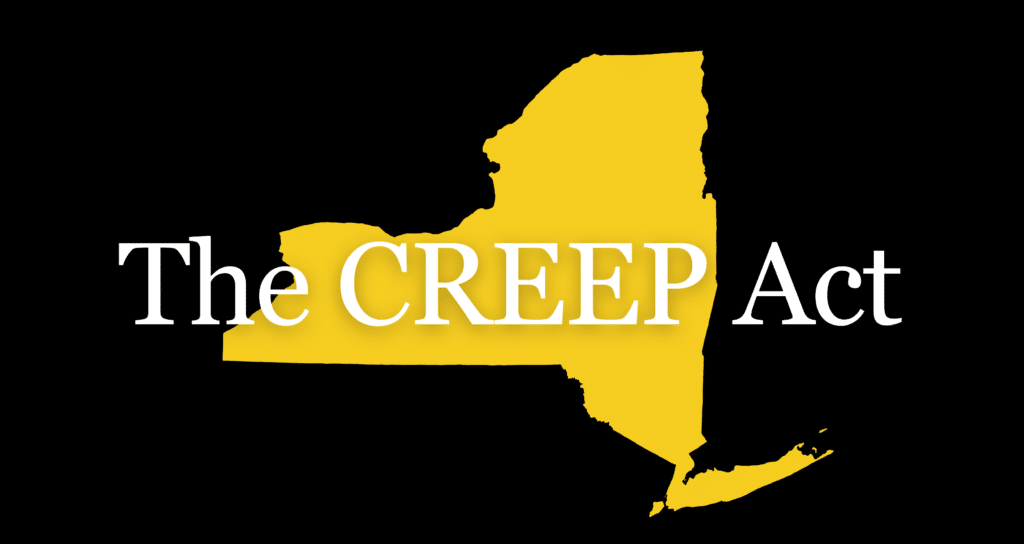Hey stalker: Leave our client the #$*& alone
C.A. Goldberg, PLLC was founded on the tenet that everybody has the right to be left alone. Stalking is illegal in all 50 states.
Get in TouchC.A. Goldberg, PLLC was founded on the tenet that everybody has the right to be left alone. Stalking is illegal in all 50 states.
Get in TouchStalking is repeated unwanted conduct directed at you by another person. It is invasive, fear-inducing and illegal.
After she was stalked by a vengeful ex, Carrie founded this firm on the concept that people have the right to be left alone.
Stalkers can be obsessive and dangerous, dying for direct contact from their victim. Nobody should think they can handle it on their own without an experienced lawyer. Our team of lawyers has succeeded in holding third parties liable when they’ve facilitated or turned a blind eye to stalking, such as at work and in residential buildings. We’ve also sued social media companies and dating apps when their products facilitated stalking.
We’ve gotten over a dozen of our clients’ stalkers federally indicted and they’ve been sentenced to a collective 300+ years in jail. Stalking is unmistakable and not subtle. And most of all, illegal. Just google Ian Diaz, Juan Thompson, Ryan Lin, David Waldman, Griffin Kapelus, Angela Diaz, Byron Cardozo, Joel Kurzynski, Oscar Juan Carlos Gutierrez, Brandon Andrew Clark, Harvey Weinstein, Dr. Stephen Matthews.
Our team is also taking the lead so victims of stalking in New York can get an order of protection even if they aren’t related to the offender. Many of our clients are not just being stalked by their ex. But are celebrities and content creators stalked by megafans, therapists and doctors stalked by ex-patients, professors stalked by students, roommates stalked by roommates.



An order of protection restrains the behavior of somebody who harms or threatens to harm you. It may direct the offending person not to injure, threaten, or harass you or your children. It may direct the offending person to stay away from you and your children, move out of your home, handover firearms, refrain from all contact with you, etc.
Abusers control their victims. If a victim leaves, the abuser suddenly feels a loss of control and the reaction can be violent. It is essential that considerable planning accompany the decision to leave an abusive relationship and that special care be taken even after you leave. If you are planning on leaving your abuser, we can help you make a safety plan. You’ll want to think about the friends and family who can help, where you could go, how you could leave, getting together your personal belongings, changing your phone number, opening a bank account or credit card, ensuring your devices are not being tracked, changing your passwords and adjusting your privacy settings on social media to avoid being monitored, communicating with work, installing strong locks and security systems, changing your routine. We can help plan for your safety.
We’ve worked closely with the Department of Justice in getting some of the country’s most notorious violent stalkers imprisoned for stalking our client. While law enforcers have a monopoly on what cases get investigated and charged, we are experts at putting together criminal packets of evidence so our clients’ cases are fully understood by law enforcers.
Our criminal advocacy cases have included:
 Firm News
Firm News Press
Press Press
Press Blog
BlogC.A. Goldberg, PLLC, is the country’s first law firm dedicated to justice for victims catastrophically injured by human maniacs and inhumane tech platforms. Since 2014, we’ve been at the forefront shutting down some of the worst humans and platforms (e.g. Harvey Weinstein, Omegle, GirlsDoPorn) and have litigated some of the most influential cases – against Amazon, Snap, Meta – reining in the tech companies that thought they were above the law.
Get in Touch